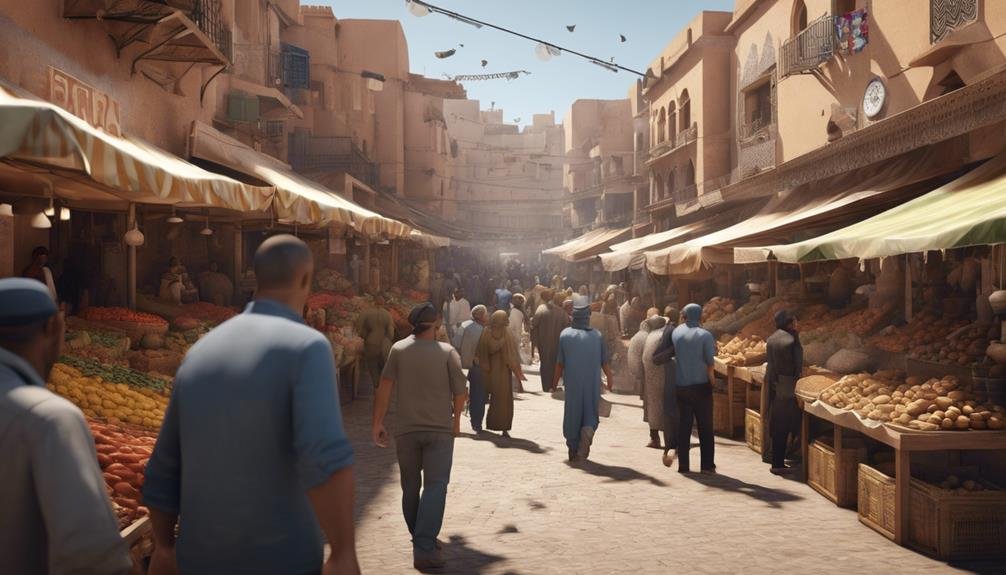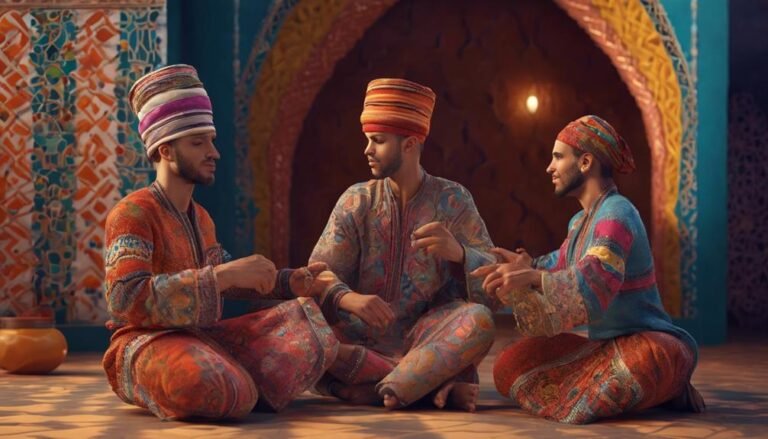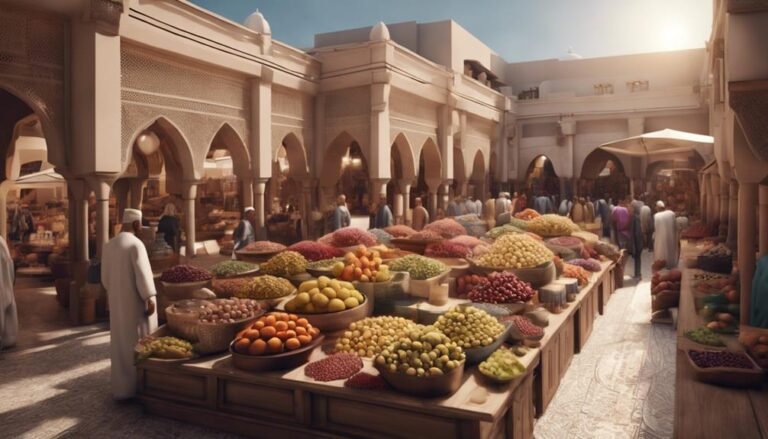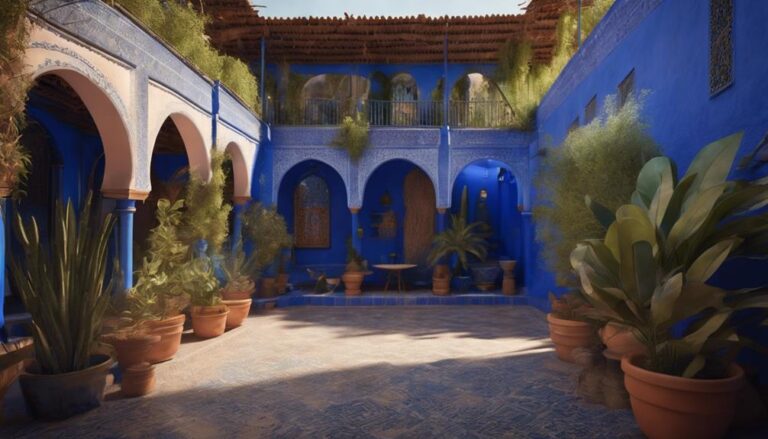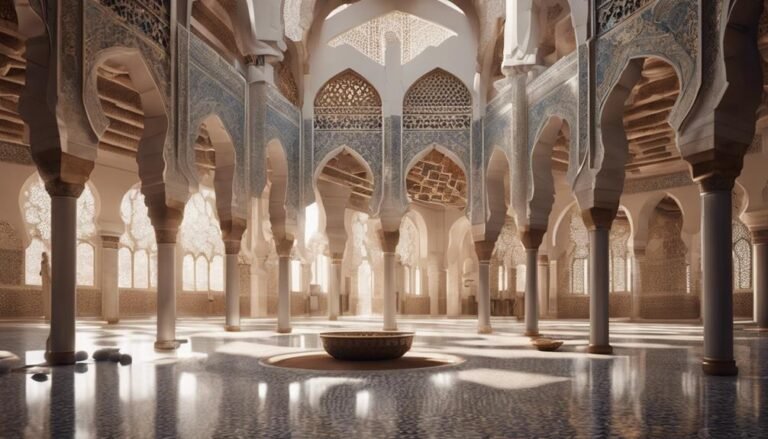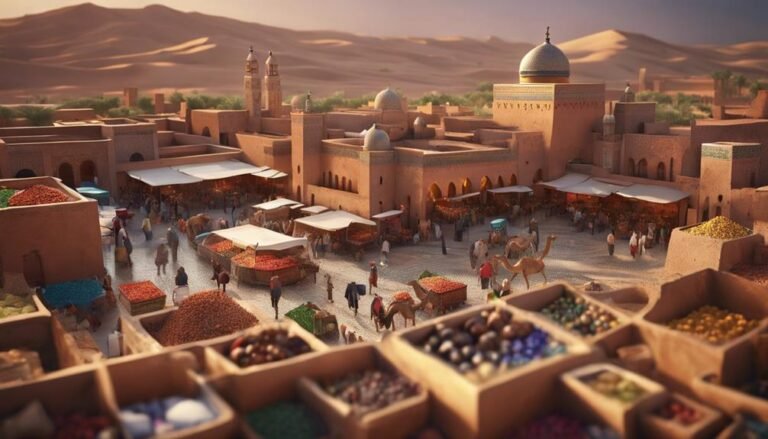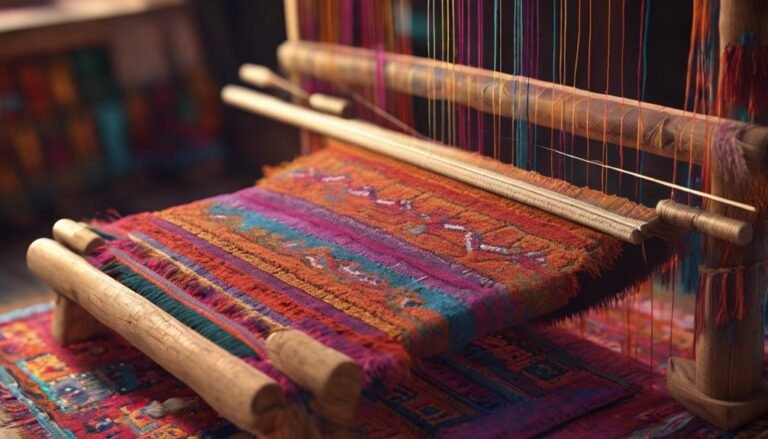Morocco is generally safe for tourists, with ongoing improvements in safety measures. Police presence is notable in popular spots, and emergency protocols are in place for your protection. Crime rates show a decreasing trend, with targeted strategies in major cities to enhance safety. Be aware of potential terrorism threats, but rest assured with increased security in tourist areas. Basic precautions, tourist assistance, and emergency contacts further guarantee your well-being. For more detailed insights on safety in Morocco, discover additional data and tips to make your trip even more secure.
Key Takeaways
- Fluctuating crime rates but increased police presence in tourist areas.
- Decreasing trend in overall crime rates with targeted strategies in major cities.
- Terrorism threats are a global concern, but Morocco has heightened security measures.
- Availability of medical services, pharmacies, and importance of health insurance.
- Tourist safety ensured through tourist police support, emergency protocols, and embassy assistance.
Safety Overview
When visiting Morocco, it's important to be aware of the safety considerations that can impact your travel experience. Travel advisories and precautions play an essential role in guaranteeing a safe journey. Before your trip, it's advisable to check for any updated travel advisories issued by your government to stay informed about the current situation in Morocco. Additionally, taking basic precautions such as safeguarding your belongings, being cautious in crowded areas, and respecting local customs can contribute greatly to your safety while exploring the country.
In Morocco, tourist assistance and support are readily available to help visitors in need. Tourist police stations are located in popular tourist destinations to provide assistance and guidance to travelers. These stations offer services ranging from general information to handling emergencies, making them a valuable resource for tourists. Moreover, many hotels and tour operators offer additional support to ensure the safety and comfort of their guests throughout their stay.
Crime Rates in Morocco
Morocco has experienced fluctuations in crime rates over the years, with certain areas seeing a rise in petty theft and scams. Authorities have implemented safety measures to address these concerns, including increased police presence in tourist hotspots.
Understanding the current crime trends and being vigilant while exploring Morocco can help guarantee a safer travel experience.
Crime Trends in Morocco
Crime rates in Morocco have shown a decreasing trend in recent years, reflecting improved safety measures and law enforcement efforts. According to crime statistics, the overall crime rate in Morocco has been declining steadily, contributing to a safer environment for tourists.
In major cities like Marrakech and Casablanca, where tourist footfall is high, authorities have implemented targeted strategies to address specific crime concerns. Petty theft, a common issue in bustling tourist areas, has also seen a decrease due to increased surveillance and police presence.
While incidents may still occur, the general trend indicates a positive shift towards enhanced tourist safety. By staying vigilant and following basic safety precautions, tourists can further minimize any potential risks during their visit to Morocco.
Safety Measures in Place
Enhanced safety measures in place have greatly contributed to the declining crime rates in Morocco in recent years. This proactive approach taken by the authorities has made the country a safer destination for tourists.
To guarantee the safety of visitors, Morocco has implemented the following:
- Emergency Protocols: The country has established efficient emergency response systems to handle any unforeseen situations promptly.
- Surveillance Systems: Increased use of surveillance cameras in public spaces has helped in deterring criminal activities and enhancing overall security.
- Tourist Police Presence: There's a noticeable increase in the presence of tourist police in popular areas, providing a sense of security and assistance to travelers.
These safety precautions are continuously being improved to uphold a safe environment for tourists exploring Morocco.
Terrorism Threats
While terrorism threats remain a global concern, it's essential for tourists to stay informed and exercise caution when traveling to Morocco. The country has experienced terrorist incidents in the past, particularly in urban areas and near the borders with Algeria and Mauritania. The Moroccan government has implemented various security measures to combat these threats, including increased police presence in tourist areas and enhanced border security.
Travel advisories from various governments often provide up-to-date information on potential risks and precautions for travelers. It's recommended to stay informed about current events, avoid large gatherings, and be vigilant in crowded spaces. Additionally, tourists should register with their embassy or consulate upon arrival to receive important safety updates.
While the threat of terrorism exists, millions of tourists visit Morocco each year without incident. By following travel advisories, taking necessary precautions, and staying alert, visitors can minimize the risks associated with terrorist threats and enjoy a safe and memorable trip to this diverse North African country.
Health and Medical Facilities
When considering your trip to Morocco, it's important to be aware of the availability of medical services in different regions and cities.
Understanding health insurance requirements for travelers is vital in ensuring you're adequately covered in case of any medical emergencies.
Being informed about the medical facilities and services available can contribute to a safer and more enjoyable travel experience in Morocco.
Medical Services Availability
Access to medical services in Morocco is facilitated by a network of hospitals and clinics spread across urban and rural areas. When seeking medical help in Morocco, consider the following:
- Language Barriers: While French is widely spoken in medical facilities, English may not be as common. It's advisable to have basic French phrases or a language translation app handy.
- Local Customs: Understanding local customs and practices can help in managing healthcare interactions. Respect for cultural norms can positively impact the quality of care received.
- Pharmacies: Pharmacies in Morocco are widespread and can provide over-the-counter medications and basic medical advice, offering convenient access to healthcare resources.
Health Insurance Requirements
Health insurance requirements in Morocco vary depending on the type of medical facility you plan to access. It's highly recommended to have travel insurance that covers medical emergencies when visiting Morocco.
While private medical facilities generally require upfront payment or proof of insurance before treatment, public hospitals may provide basic care regardless of insurance status.
Vaccination requirements for Morocco typically include vaccines for hepatitis A, typhoid, and in some cases, rabies, depending on your travel plans and medical history.
Having adequate travel insurance that covers medical expenses and understanding the vaccination requirements can help guarantee you have access to necessary healthcare services during your visit to Morocco.
Tips for Solo Travelers
For solo travelers in Morocco, prioritizing situational awareness can greatly enhance your safety and overall experience. Being mindful of your surroundings and staying alert to any potential risks is essential. Here are some tips to help you navigate Morocco as a solo traveler:
- Language Barriers: English and French are widely spoken, especially in tourist areas. However, learning a few basic phrases in Arabic or Berber can go a long way in connecting with locals and showing respect for their culture.
- Local Customs: Familiarize yourself with Moroccan customs and traditions to show cultural sensitivity. Dress modestly, particularly when visiting religious sites, and be mindful of social norms regarding greetings, gestures, and interactions with the opposite sex.
- Stay Connected: Inform someone trustworthy about your itinerary, stay in touch regularly, and consider using local SIM cards or portable Wi-Fi devices for reliable communication during your travels.
Cultural Sensitivities to Consider
When traveling in Morocco, it's important to be mindful of cultural sensitivities to ensure a respectful and enriching experience. One key aspect to keep in mind is the dress code. While Morocco is relatively liberal compared to some other Islamic countries, it's still advisable to dress modestly, especially when visiting religious sites or more conservative areas. For both men and women, it's recommended to avoid wearing revealing clothing to show respect for the local customs and traditions.
In addition to the dress code, understanding and adhering to social norms is vital. In Moroccan culture, greetings are an essential part of daily interactions. It's customary to greet others with 'Salam alaykum' (peace be upon you) followed by 'Wa alaykum as-salam' (and peace be upon you) in response. Respect for elders is highly valued, so addressing older individuals with deference is appreciated.
Emergency Contacts and Resources
In case of emergencies while in Morocco, familiarize yourself with local emergency contacts and resources to guarantee prompt assistance when needed. Morocco has a well-established emergency response system that tourists can rely on in times of crisis. Here are some key points to keep in mind:
- Local Support: The Moroccan emergency number for police, ambulance, and fire services is 19. Save this number in your phone and use it when immediate assistance is required. Additionally, knowing the location of the nearest police station or hospital can be beneficial in urgent situations.
- Emergency Assistance: The tourist police in Morocco are specially trained to assist visitors in distress. They can provide support in multiple languages and help navigate challenging situations. It's advisable to have their contact information handy for any unforeseen events.
- Embassy Support: Contact your country's embassy or consulate in Morocco for additional assistance during emergencies. They can offer guidance, help with documentation, and facilitate communication with local authorities if needed. Make a note of their contact details before your trip for added peace of mind.
Conclusion
To sum up, Morocco offers a vibrant tapestry of culture and history for tourists to explore. While safety concerns may arise, being vigilant and informed can help mitigate risks.
With its rich traditions and warm hospitality, Morocco beckons travelers to unravel its mysteries like a tapestry waiting to be discovered.
So pack your bags, begin an adventure, and let the magic of Morocco captivate your senses.

The Editorial Team is a passionate group of Morocco enthusiasts dedicated to sharing the beauty, culture, and wonders of this captivating country. With diverse backgrounds and a deep love for travel, we strive to bring you engaging and informative content that inspires your Moroccan adventures. From uncovering hidden gems and sharing local insights to exploring mouthwatering cuisine and showcasing the vibrant lifestyle, our team is committed to providing you with valuable resources and exciting stories that enhance your exploration of Morocco. Join us on this journey as we celebrate the rich heritage and unforgettable experiences that make Morocco truly special.

